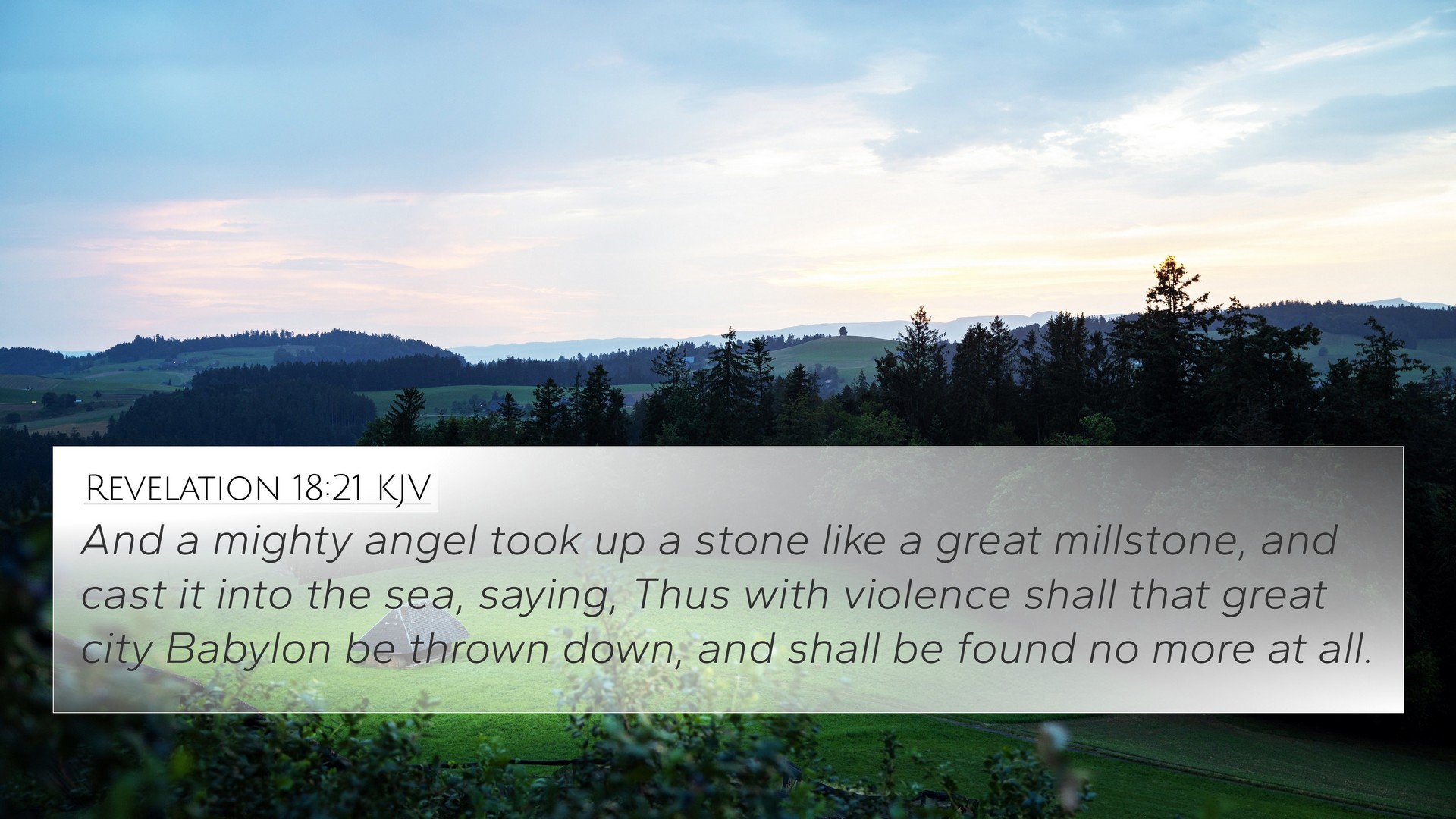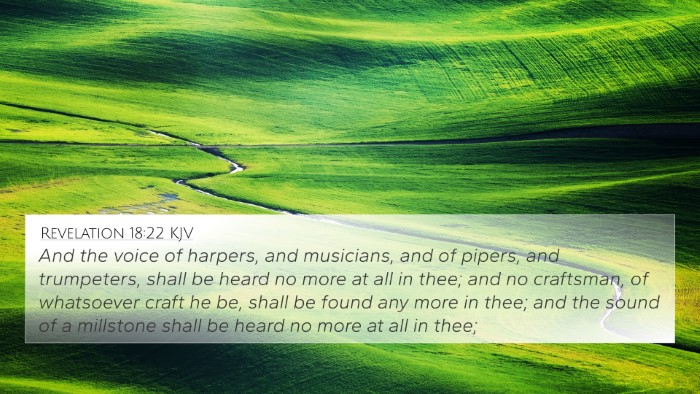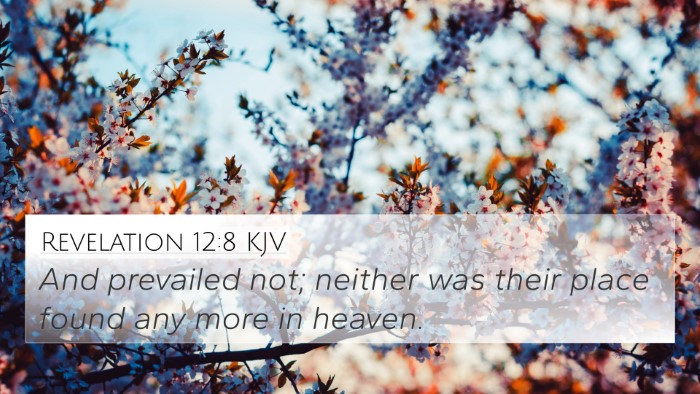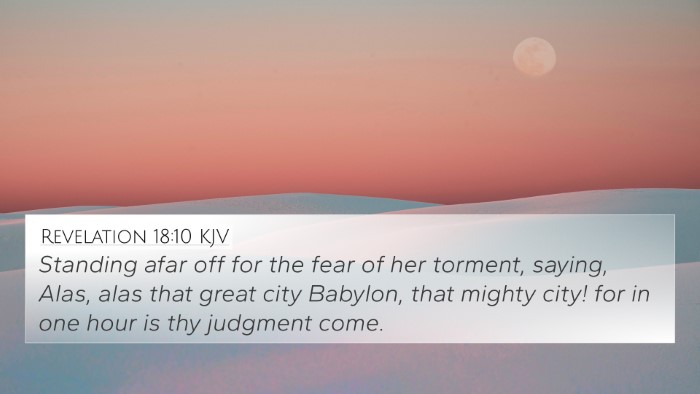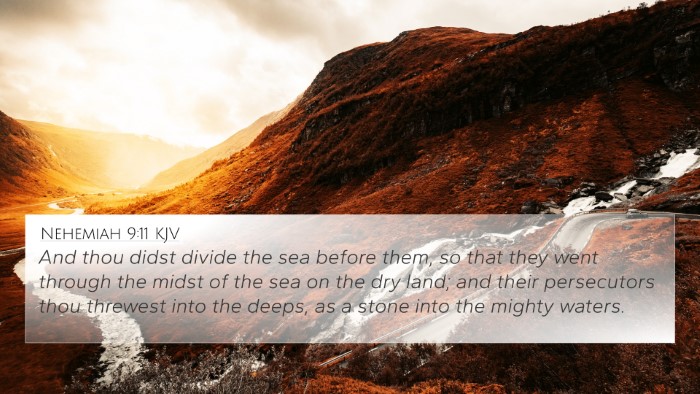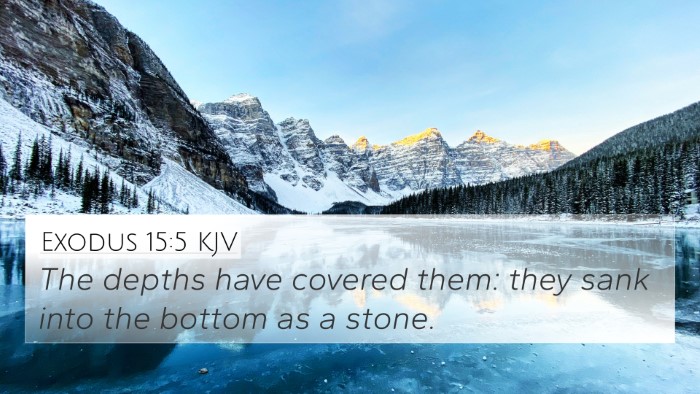Understanding Revelation 18:21
Revelation 18:21 serves as a pivotal moment in the text, highlighting the judgment of Babylon, symbolizing corrupt nations, systems, or institutions in opposition to God’s kingdom. The verse states:
"And a mighty angel took up a stone like a great millstone and threw it into the sea, saying, 'Thus shall Babylon, the great city, be cast down with violence, and shall be found no more at all.'" (Revelation 18:21, ESV)
Key Themes and Insights
This verse encapsulates several themes, including divine judgment, the fall of great powers, and the ultimate vindication of God’s justice. Below are the insights from notable public domain commentaries:
Matthew Henry's Commentary
Henry describes the mighty angel as a symbol of God’s power, emphasizing that Babylon's fall serves as a warning against pride and wickedness. The casting of the millstone signifies total destruction, reinforcing the irreversible nature of divine judgment. Henry notes the strong contrast between the fleeting glory of earthly cities and God's eternal kingdom.
Albert Barnes' Commentary
Barnes highlights the symbolism of the millstone and its association with inevitable judgment. He explains that the destruction of Babylon represents the downfall of all that opposes God's will. Barnes draws parallels between this event and the prophetic declarations in the Old Testament regarding the fate of nations standing against God's rule.
Adam Clarke's Commentary
Clarke elaborates on the imagery employed in this verse, interpreting Babylon as a depiction of moral corruption and apostasy. He emphasizes that the millstone signifies not just destruction, but a complete and utter rejection by God. Clarke provides a critical view of how the narrative mirrors the decline of societies that defy divine order.
Cross References and Related Bible Verses
Revelation 18:21 can be effectively understood through several cross-referenced verses throughout the Bible. Here are a few significant connections:
- Jeremiah 51:63-64: Highlights the judgment against Babylon, echoing similar themes of destruction.
- Isaiah 13:19: Prophesies the fall of Babylon, establishing a historical context for Revelation.
- Ezekiel 26:21: Talks about the desolation of cities and the finality of divine judgment.
- Matthew 18:6: Cautions against causing others to stumble, paralleling the impending doom of corrupt influences.
- Lamentations 3:22-23: Offers insight into God's mercy amidst judgment, contrasting Babylon's fate.
- 2 Peter 2:6: Discusses the destruction of the ungodly, reinforcing the lesson of accountability.
- Revelation 16:19: Narrates the destruction of great cities as part of God’s final judgments.
Thematic Bible Verse Connections
Connections between this verse and others highlight significant biblical themes:
- Judgment and Justice: The retributive justice of God is a prevailing theme throughout scriptures.
- Hope and Redemption: Despite judgment, the scriptures often point to hope for those who remain faithful.
- Corruption and Ruin: The fall of communities due to moral decay is illustrated throughout biblical history.
- The Power of God: The contrast between human authority and divine power can be traced from Genesis to Revelation.
Tools for Bible Cross-Referencing
For deeper study, utilizing tools for Bible cross-referencing is essential. Consider leveraging resources such as:
- Comprehensive Bible concordances for verse lookup.
- Bible cross-reference guides to explore connections across texts.
- Interactive cross-reference Bible study methods to uncover thematic relationships.
Engaging in comparative Bible verse analysis through linking scriptures not only enhances understanding but also reveals the consistency of God's message across the biblical narrative. Through further study and inter-Biblical dialogue, believers can better appreciate the overarching themes of judgment, redemption, and hope encapsulated within Revelation 18:21.
Conclusion
Revelation 18:21 serves as a stark reminder of the fate that awaits those who stand against the divine order of God. By understanding and cross-referencing this verse with others, readers can deepen their awareness of biblical themes and enhance their spiritual insights.
